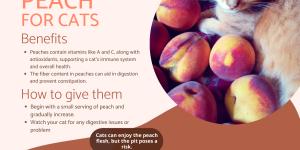Can Rabbits Eat Blueberries?



See files for Rabbits
Rabbits are herbivorous animals that can eat a variety of fruits and vegetables as part of their diet. Blueberries are a nutritious fruit that contain antioxidants, fiber, and various vitamins and minerals. However, not all fruits are safe for rabbits, and some can even be harmful. Therefore, it's important to know if blueberries are safe for rabbits before including them in their diet.
The following AnimalWised article will tell you if rabbits can eat blueberries, as well as the possible benefits and side effects.
Are blueberries good for rabbits?
To answer whether blueberries are good for rabbits, it is important to understand the basics of their diet. As herbivores, rabbits rely on three key elements for their diet:
- Hay (80%): timothy hay is a common and nutritious choice for rabbits, though other types of grass hay can also be suitable. Hay provides the fiber and roughage necessary for healthy digestion and helps wear down rabbits' teeth, which continuously grow.
- Pellets (5%): rabbits should be given a small amount of rabbit pellets each day. These pellets should be high in fiber and low in sugar and fat. Pellets can provide additional nutrients that may be lacking in hay and fresh vegetables.
- Fruits and vegetables (15%): these should consist mainly of leafy greens such as romaine lettuce, kale, and spinach. Other suitable vegetables include carrots, broccoli, and bell peppers. Small amounts of fruit can also be offered as an occasional treat.
Blueberries are among the fruits that are safe for rabbits and provide numerous nutritional benefits without containing toxic substances. Although rabbits often enjoy the taste of blueberries, it is essential to note that they should not consume them on a regular basis.
In the following sections, we explain the appropriate amount and frequency of blueberry consumption that can be given to rabbits to ensure that they can enjoy the fruit's properties without negative effects on their health.
Also, in our other article, you will find a list of other suitable fruits and vegetables for rabbits.
Benefits of blueberries for rabbits
Blueberries can provide several health benefits for rabbits when given in moderation as part of a balanced diet. Some possible benefits of blueberries for rabbits include:
- Low calorie: Blueberries are low in calories and contain a moderate amount of carbohydrates and a low amount of fat and protein. This means that the inclusion of blueberries in a rabbit's diet does not significantly increase the energy value of its diet, which helps maintain a stable body condition.
- Good source of fiber: are an excellent source of fiber, which is important for regulating intestinal activity, maintaining intestinal health and preventing digestive problems in rabbits.
- Rich in vitamins: are rich in numerous important vitamins, including vitamin A, vitamin K and vitamin E. These vitamins play an important role in maintaining overall health and supporting various bodily functions.
- Rich in manganese: are a good source of manganese, which is important for the production of thyroid hormones and the proper functioning of the brain.
- Antioxidant activity: are among the foods with the highest antioxidant activity, thanks to the combination of vitamins, minerals and fifteen anthocyanins. Antioxidants protect against cell damage caused by free radicals and slow down the development of various diseases.
- Prevents urinary tract infections: contain hippuric acid and proanthocyanidin, which can help prevent urinary tract infections in rabbits by reducing the ability of E. coli to adhere to the urothelium of the bladder.
- High-water content: have a high water content that can help keep rabbits hydrated, especially in hot weather.
- Provides enrichment: offering your rabbits occasional blueberries as a treat can provide mental and physical enrichment for them as they enjoy the taste and texture of the fruit.
However, it is important to note that blueberries should be fed to rabbits only in moderation and along with a balanced diet of hay, fresh vegetables, and a small amount of pellets. Excessive consumption of fruit can upset a rabbit's digestive system and cause health problems.
You can find out more about rabbit diarrhea in this other article.
Dosage of blueberries for rabbits
Moderation is advised when feeding blueberries to rabbits. Blueberries should be considered a treat or supplement to a rabbit's normal diet rather than a staple.
A good rule of thumb is to give rabbits a small amount of blueberries, 2–3 berries (in small rabbits) or 4–5 berries (in large rabbits), once a week. This amount is sufficient for rabbits to enjoy the flavor and nutritional benefits of blueberries without overloading their diet with too much sugar.
Do not miss this other article where we have listed the most common toxic foods that should never be fed to rabbits.
How to give rabbits blueberries?
When giving blueberries to rabbits, it is important that you do so in moderation and as part of a balanced diet. Here are some tips on how to feed blueberries to rabbits:
- Introduce blueberries slowly: offer your rabbit a small piece of blueberry at first to see if they like it and to make sure it does not cause digestive problems.
- Offer fresh blueberries: fresh blueberries are the best choice for rabbits. Make sure they are clean and free of pesticides or harmful chemicals.
- Cut them into small pieces: cut blueberries into small pieces to make them easier for your rabbit to eat and digest.
- Mix them with other fruits and vegetables: you can mix blueberries with other harmless fruits and vegetables to provide your rabbit with a variety of flavors and nutrients.
- Limit the amount: while blueberries are safe for rabbits, they should only be given in moderation as part of the 15 percent fresh food portion of the diet.
- Avoid canned or frozen blueberries: canned or frozen blueberries often contain sugar and preservatives that are not good for rabbits.
Remember that blueberries should not replace hay, fresh water, and a high-quality pellet diet in a rabbit's diet. If you have concerns about your rabbit's diet, you should always consult a veterinarian.
You may also be interested in this other article, where we explain how much food your rabbit should eat.
Side effects of blueberries in rabbits
Although blueberries are generally safe and beneficial for rabbits, there are some possible side effects that you should be aware of. These include:
- Digestive problems: although blueberries are a good source of fiber, overfeeding can cause digestive problems such as diarrhea, especially if the rabbit is not used to eating them.
- Dental problems: blueberries contain natural sugars that, if fed in excess, can contribute to dental problems such as tooth decay and overgrowth. Therefore, it is recommended that blueberries be offered only as a treat and in moderation.
- Allergic reactions: in rare cases, rabbits may develop an allergic reaction to blueberries with symptoms such as itching, hives and breathing problems. If you notice unusual symptoms in your rabbit after feeding blueberries, stop feeding immediately and contact a veterinarian.
Overall, blueberries can be a healthy and enjoyable treat for rabbits when offered in moderation and as part of a balanced diet. If you want to know more about what other treats you can offer to your rabbit occasionally, do not miss the video we leave you below.
If you want to read similar articles to Can Rabbits Eat Blueberries?, we recommend you visit our Homemade diets category.





